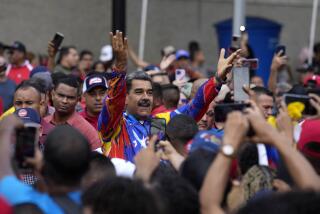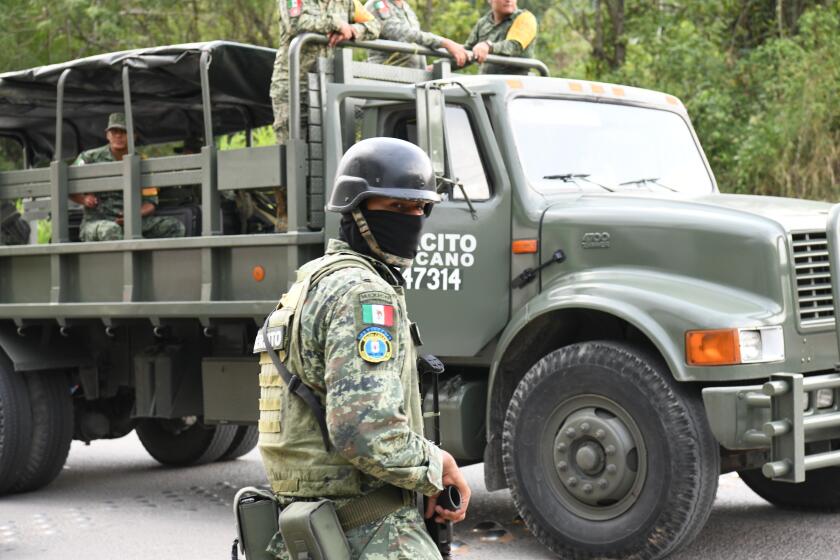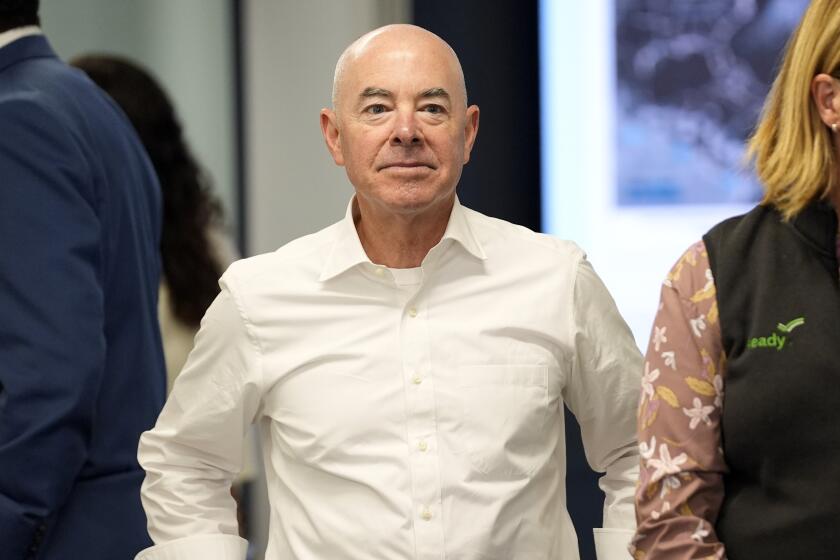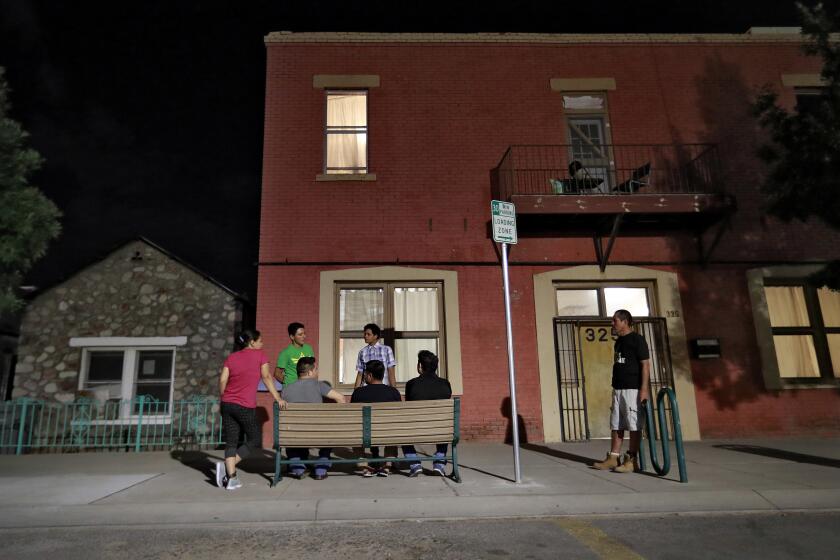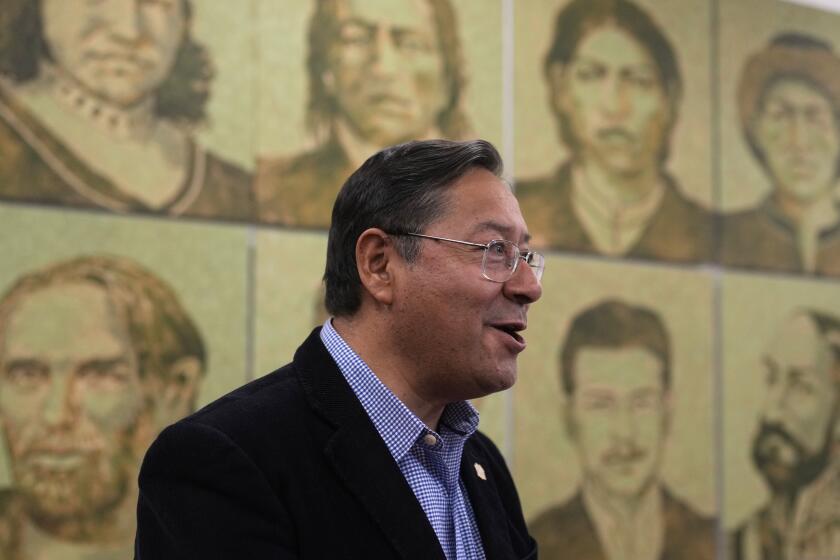Venezuelan president says arrest of opposition leader Juan Guaidó ‘will come’
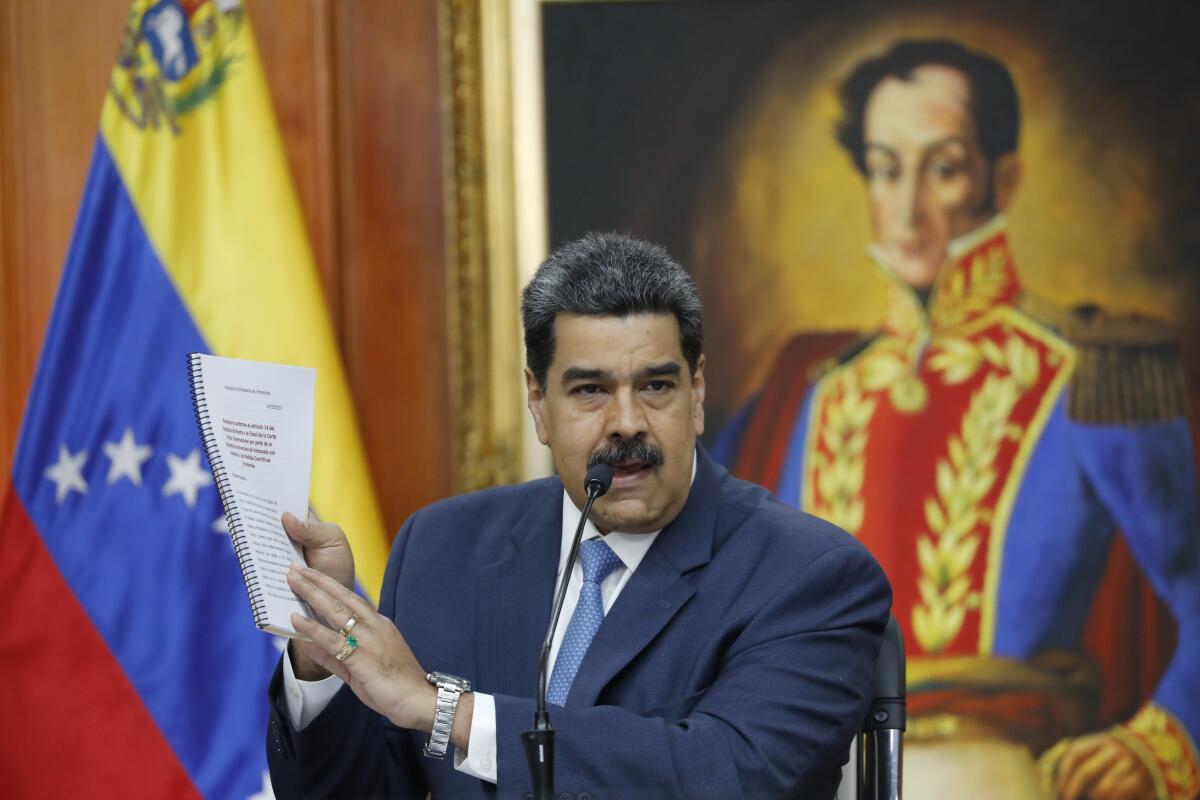
Venezuelan President Nicolás Maduro said Friday that authorities haven’t detained opposition leader Juan Guaidó because the courts haven’t ordered it, but he warned: “It will come.”
Maduro made the remark in a meeting with the international press three days after Guaidó returned from a tour to the U.S. and Europe, in defiance of a court order prohibiting him from leaving the country.
Despite the order, migration officials let Guaidó back into the country after he arrived on a commercial flight at Venezuela’s main international airport.
Maduro said that the day Venezuela’s justice system decides Guaidó should be imprisoned “for all the crimes he’s committed,” he will be jailed. Venezuela’s judicial system is stacked with pro-Maduro officials who routinely issue decrees in accordance with the president’s viewpoints.
“That day hasn’t come yet,” he said in response to a question from the Associated Press. “But it will come.”
The warning comes as Guaidó tries to revive momentum in Venezuela for his flagging opposition movement. Though President Trump and leaders from nearly 60 other nations have expressed their continuing support, many inside Venezuela have grown wary of the opposition as Maduro remains in the presidency and consolidates his power.
Maduro delivered an angry diatribe against U.S. sanctions that he likened to a “sick persecution.”
The economic pressure has forced him to make decisions seemingly in contradiction with his government’s socialist ideology in order to keep the Venezuelan economy afloat.
Nearly half the population now makes purchases in U.S. dollars, according to Ecoanalitica, a Caracas-based analysis firm. The dollarization has helped fuel a limited revival of Venezuela’s economy in the capital and other cities, while also highlighting disparities between those who do and do not have access to dollar bills.
Maduro loosened rigid currency controls in place for 16 years last May, allowing banks to buy and sell U.S. dollars at any exchange rate, making it far easier for entrepreneurs to operate in a currency accepted internationally.
“Having to choose whether to repress or permit, I chose to permit it,” he said of the growing dollarization. “It was a choice in the middle of a war. And that choice has allowed the economy to breathe.”
He added that he is “conscious of the inequality that arises in this process, but we are at war.”
Maduro has held on to power despite runaway hyperinflation, a massive exodus and shortages of food and medicine — and Guaidó’s international recognition.
More to Read
Start your day right
Sign up for Essential California for news, features and recommendations from the L.A. Times and beyond in your inbox six days a week.
You may occasionally receive promotional content from the Los Angeles Times.

